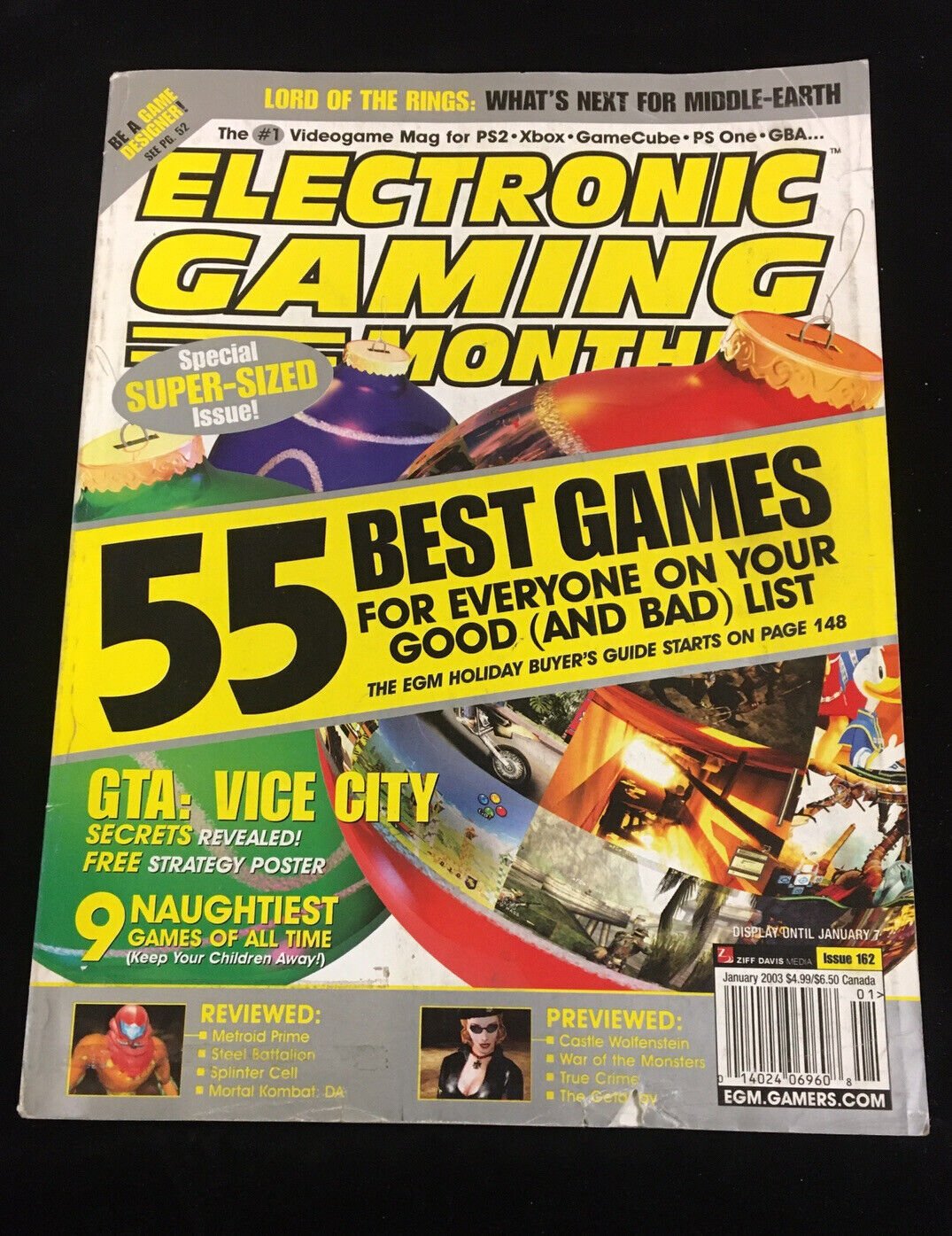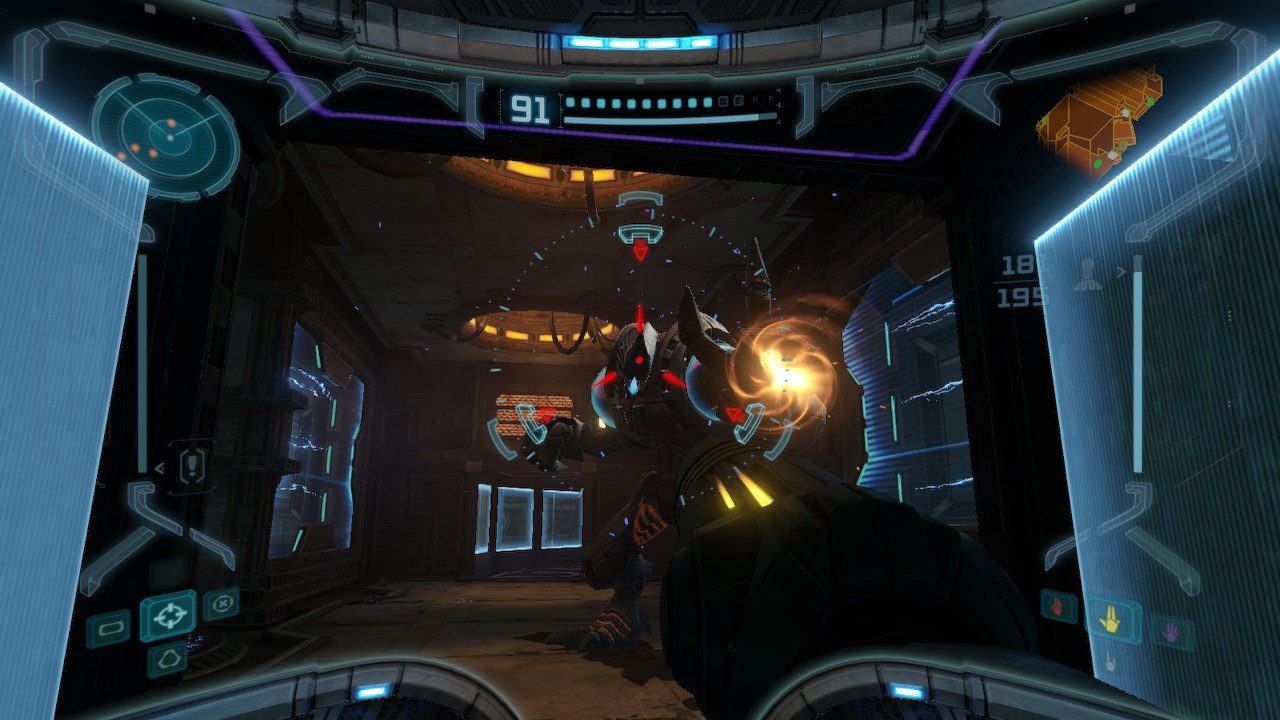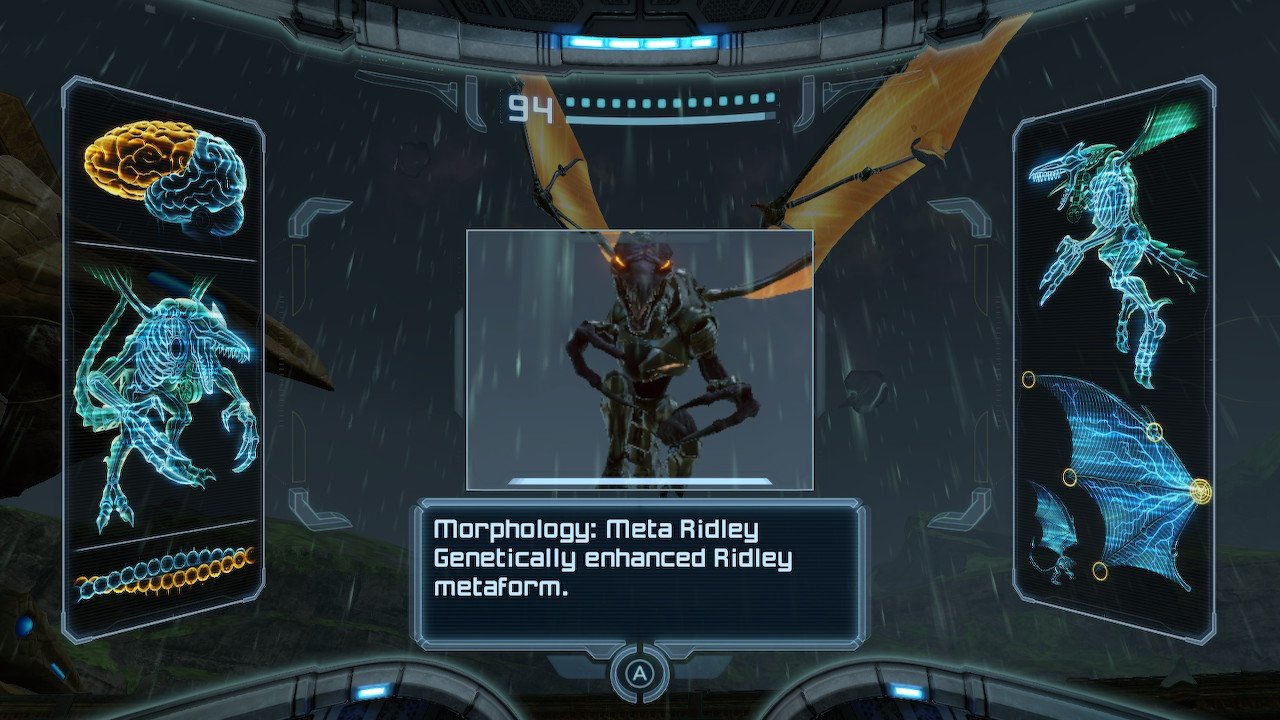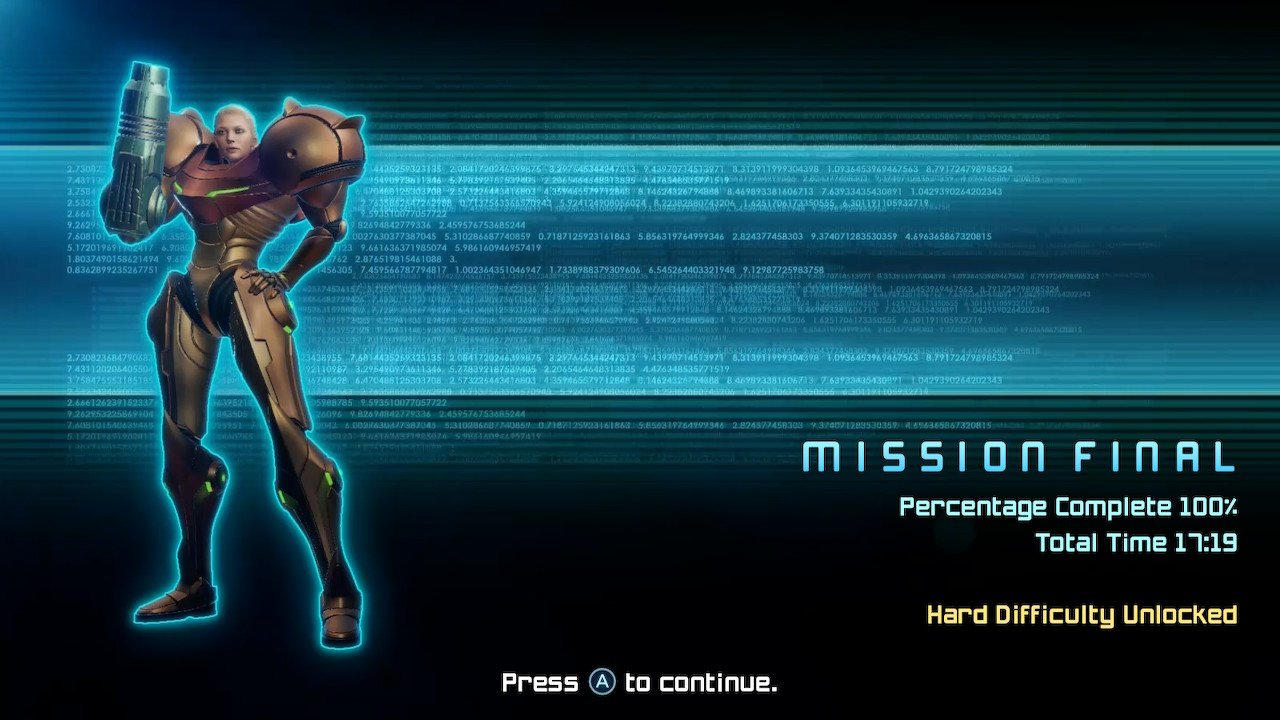Metroid Prime Remastered: You can go home again
Samus stares down her first infant metroid on Tallon IV, moments before committing wholesale genocide deep within a Phendrana Drifts research lab.
I read this issue in particular so much that the ink started wearing off.
For 20 years, 3 months and 3 days, Metroid Prime has been my favorite game of all time. You deserve to know that upfront. My January 2003 issue of Electronic Gaming Monthly, containing three sterling (platinum, even) 10/10 reviews of Metroid Prime, is still stuck in a closet somewhere. Some small part of me is probably stuck in there with it.
At the age of 13, I didn't have a job (or even an allowance—in my house, you were lucky to be “allowed” to eat, sleep and live under a roof). This means I didn't have a GameCube yet, but my uncle Steve did; we rented Metroid Prime and I swear to God it felt like being pulled inside of another dimension, like Jumanji minus the creepy nursery rhymes.
Final Fantasy VII, Metal Gear Solid and their ilk were mainstays in my house, so I was familiar with cinematic games. But Metroid Prime might have been the first time I ever thought to describe myself as “immersed” in a game. Every single design principle of Metroid Prime, from the way rain and fog collected on Samus's helmet in certain environments to the sway of her beam cannon as she walked, reinforced the fact that I was Samus Aran: bounty hunter, researcher and, most importantly, explorer.
Seeing this condensation never gets old.
Two months later, my mom was deployed to Iraq for 14 months. But before she left, she gifted me a brand-new black GameCube and my own copy of Metroid Prime. Tallon IV, the mysterious decaying planet housing much of Samus's adventure, would become a place of refuge for me during some difficult months.
I remember seeing a helicopter crash in Mosul, Iraq, where my mother was stationed, one Sunday morning as we were getting ready for church. I wouldn't know if she was OK until she called again, but at least I knew that this new Varia Suit I picked up would let me explore Magmoor Caverns without melting to death. When the real world supplied anxiety, it was easy to find comfort in Tallon IV's myriad mysteries, in which all I needed was a little observation and patience.
There’s a puzzle of some sort in every room. And almost every room is, itself, a puzzle.
Long before anyone called it the Citizen Kane of video games, I thought that Metroid Prime was the best game I'd ever played. It was pointless to try to decouple those strong feelings from the time and place in which I experienced them.
The Chozo statue shrine I'd dedicated to it in my mind only became more unassailable in the intervening years. I couldn't even fully appreciate how perfectly it had transcribed the Metroid formula onto a 3D space because it was my second Metroid game ever, alongside Metroid Fusion. Fusion gave me a little context, but it too was a departure from the series in its own way.
The Phazon Suit is still the coolest suit in franchise history.
It wasn't until I'd converted my garage into an arcade one lazy summer and discovered an ancient-yet-playable copy of Super Metroid that I realized how special Prime was in retrospect. They rhymed in so many key ways, much more than the backtracking and the ability collecting. It was the thoughtful way that regions connected and imprinted onto my memory. How eventually I stopped needing to open a map at all. How the game world became a home.
I’m ashamed of myself for writing 1,100 words about Metroid Prime all while excluding the phrase “morph ball.” But I would spend the rest of my life in a halfpipe if I could.
It's well known that our memories are altered in some small way each time we recall them. The filing cabinet that serves as my recollection of Metroid Prime has gathered no shortage of dust, and I was certain that some drawers had rusted shut forever. I was content to leave those memories unbothered, made happily warm and vague through the erosion of time.
So when Metroid Prime Remastered was shadow-dropped on Feb. 9 for the Switch, I was as conflicted as I'd ever been. Even if Metroid Prime hadn't changed, surely I had. My frame of reference is so much more complex than it was 20 years ago. First-person shooters have changed, although perhaps not entirely for the better.
Metroid itself has changed as a franchise. Samus the Scientist has given way to Samus the Shocktrooper in Metroid Dread (which I love dearly).
Don’t misunderstand. Samus is a problem in Metroid Prime, as well.
But sometimes home is just how you left it. Which isn't to say that it's identical. I was ecstatic to see the new dual-stick control scheme, particularly for those coming to Metroid Prime for the first time. Though as a lefty, Metroid Prime is the one rare first-person game that felt especially accommodating to me by default, and so I almost immediately switched to the classic control scheme. But as any remaster worth its bendezium ought to, Metroid Prime Remastered at least offers the option (four of them, even).
I went the classic route, but Metroid Prime’s snappy lock-on combat feels good no matter which configuration you choose.
I adored the updated textures and lighting, which paint a picture so staggering beautiful that it even betrays my memory, but in the best way. It wasn't until seeing Digital Foundry's side-by-side comparisons that I realized how high that pedestal was from a visual standpoint (though it sure was a looker in 2002). So it's a credit to Retro Studios, Iron Galaxy and others that this shiny new facsimile of my most-treasured memory was so believable.
I have no idea how they managed this on Switch hardware, at a locked 60 frames per second, even.
This is the part where I apologize if you came here looking for criticism of Metroid Prime in the context of video games in 2023. I love every single design decision that Retro made, then and now.
This guy is still an absolute bastard.
I never needed an auto-save. The tension of poking at Tallon IV's corners until you finally discover a new base of operations via save room is part and parcel of its appeal.
Switching to a mode in which you can't fire your weapon to scan your environment and enemies, revealing critical information and even new lock-on points in the process, remains novel today.
The 11th-hour challenge of discovering 12 artifacts that your forebears left specifically for you (and not, say, an invading force of space pirates) to use to defeat the great corruption at the heart of Tallon IV reinforced the fact that Metroid Prime is about exploration, first and foremost.
Metroid Prime never needed fixing.
Not to flex, but… I was serious.
Metroid Prime's singular-ness is even more apparent to me amid today's landscape of video games. I've played dozens of VR games since and, with the notable exception of Half-Life: Alyx, not one of them proved as convincing of a fictional space as Tallon IV. I could probably write a guide from memory on Metroid Prime's missile, energy tank and power bomb expansions are, and that's not just because I've played it so many times. It's because every single corner of Tallon IV feels bespoke and considered.
All this time, everything was right where I remembered it. Every once in a while, you can go home again.














